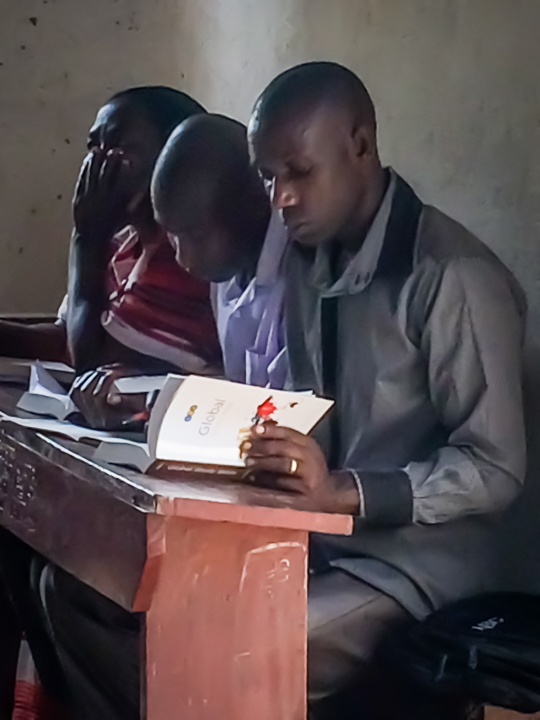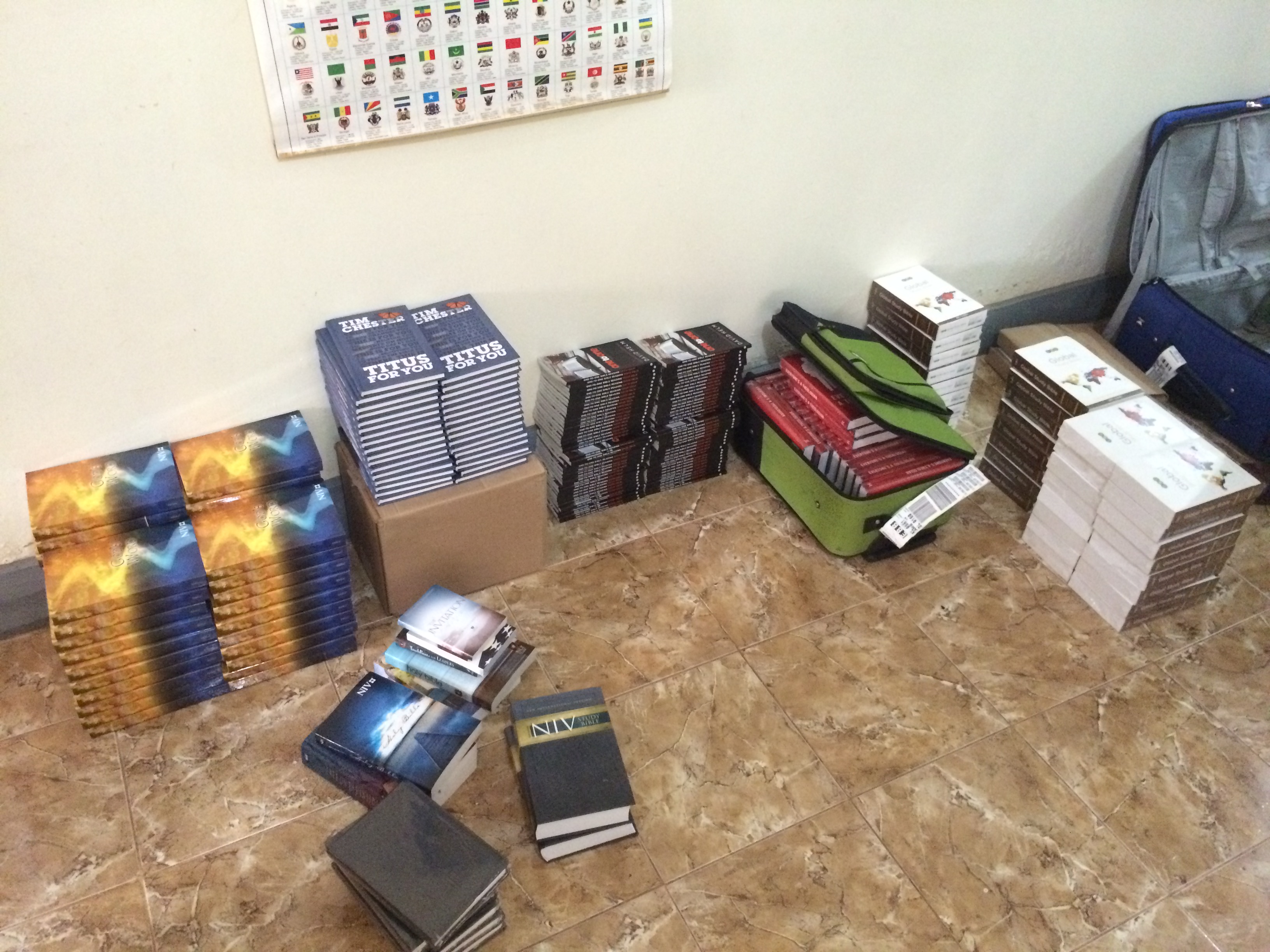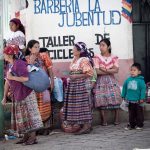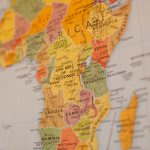The request made the mission leaders pause. Why did the woman want an English-language Bible if she couldn’t read English?
Sam Soita, executive director of Mission: Moving Mountains Uganda (M:MM Uganda) in Mbale, wondered what Margaret Masai would do with an ESV Global Study Bible. They gave her one anyway.
Although English is the country’s official language, some older Ugandans cannot read it. Access to God’s Word is limited since only the New Testament is available in Lumasaba—the Bantu language spoken by more than 750,000 in eastern Uganda. M:MM Uganda works around this challenge by providing Bible teaching in English for all members of the community. They also train those who are able to teach and disciple others.
Soita recalled how Margaret regularly participated in the leadership sessions at M:MM Uganda’s mission compound. She yearned to share Scripture with her unbelieving children, but they weren’t interested in reading from the Lumasaba-language New Testament. However, she knew they took pride in their English skills and suspected they’d jump at the opportunity to serve as “experts.”
New Bible in hand, Margaret returned from the daily sessions and asked her children to read the lesson’s passages. Then, applying what she learned, Margaret probed their understanding. The story of Daniel in the lions’ den led to a discussion about miracles, God’s provision, and the need to believe. “We want to be like the king and believe in Daniel’s God, too,” the children told their mom.
M:MM Uganda’s training—facilitated in part by Packing Hope resources from TGC International Outreach—has equipped Christian workers to understand biblical truths and apply them in everyday life.
Passion for Bible Training
Operation World reports that 85 percent of Ugandans are Christian. Nevertheless, faith-based training and mission groups observe a widespread ignorance of basic tenets of the faith. As Soita explained, M:MM Uganda’s vision is to reverse that trend: “My passion has been for obtaining available discipleship materials to teach the people to dig deeper.”

Warland led teams to Mbale twice in 2015, taking Packing Hope materials. The resources included 36 ESV Global Study Bibles; 80 copies of the guidebook One to One Bible Reading by David Helm; 40 copies of Everyone’s a Theologian by R. C. Sproul; 64 copies of Tim Chester’s study Titus for You; and three Pastors Book Sets (Crossway).
One to One Bible Reading helps with mentoring and discipleship, and the Pastors Book Sets benefit participants and local pastors—including pastors’ wives—“who will have the greatest impact on the community.”
Soita serves as a regional overseer of 120 Baptist churches, and he encounters many who profess Christ but know little about him. The numbers reported to mission boards are impressive but misleading. “Because there is no follow up,” he laments, “they can’t contend for the gospel and they are not rooted in Christ.”
More on the Way
But more Mbalians are looking for gospel-centered instruction. As a result of last year’s deliveries, registration for M:MM training events is up by more than 60 percent.
In March 2016, an HCC missions team helped M:MM Uganda conduct two-day workshops on Christian leadership based on 1 and 2 Timothy and Titus. Ninety Ugandans attended, though many more desired to participate. Organizers capped attendance both for the sake of logistics and as a way to gauge commitment. “If their interest is more than passing, they will be first in line next time,” Soita said.
Next time is not far away. An upcoming workshop will incorporate Titus for You for selected candidates. Soita believes this training demonstrates discernment and careful stewardship of contributions, consistent with 2 Timothy 2:2: “What you have heard from me . . . entrust to faithful men who will be able to teach others also.”
Like Hot Cakes
The pastor of Bungwanyi Anglican Church of Uganda in Mbale saw slow progress in biblical understanding among his small-group participants, which he attributed to a lack of Bibles. Discouraged, he expressed his frustration to Soita.
“They read and hear the Word in the study,” Soita explained, “but often they go home and have no Bible, so there is no meditating on the Word or teaching they’ve heard.”
M:MM Uganda has now provided the Anglican pastor with ten ESV Global Bibles for his small group studies. With Bibles in their homes, participants study the Scriptures deeper and faster.
“In half the time!” Soita said. “The members are holding family altar time every day, and they report more unity in the family. The Bible is like hot cakes: every hour it looks like somebody is holding it and eating it.”
The Anglican pastor now searches for more demanding material because his small group is ready for meatier instruction—a joyful dilemma. He and Soita envision a generation of Ugandans rising up—future leaders of the church—through deliberate training in Christian faith. Children witness men and women committing themselves to in-depth study of God’s Word.
They’re all digging in as if the Word is hot cakes.
Is there enough evidence for us to believe the Gospels?
 In an age of faith deconstruction and skepticism about the Bible’s authority, it’s common to hear claims that the Gospels are unreliable propaganda. And if the Gospels are shown to be historically unreliable, the whole foundation of Christianity begins to crumble.
In an age of faith deconstruction and skepticism about the Bible’s authority, it’s common to hear claims that the Gospels are unreliable propaganda. And if the Gospels are shown to be historically unreliable, the whole foundation of Christianity begins to crumble.

































